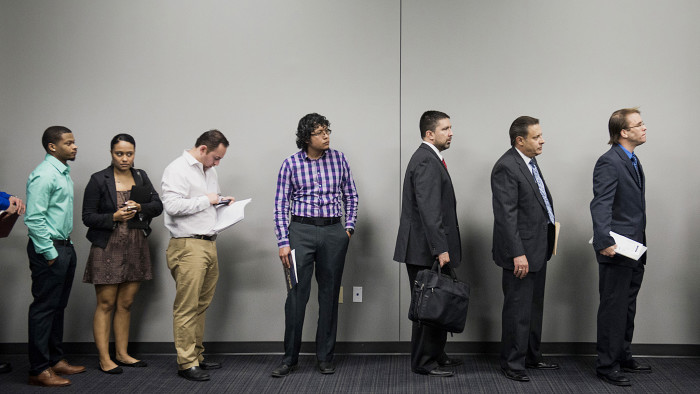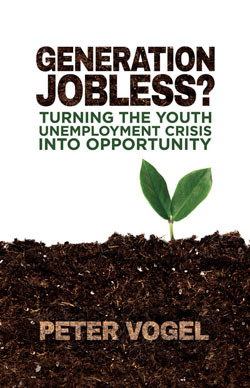Review: Generation Jobless? by Peter Vogel

Roula Khalaf, Editor of the FT, selects her favourite stories in this weekly newsletter.
Generation Jobless? Turning the youth unemployment crisis into opportunity by Peter Vogel, Palgrave Macmillan, £22.99
Youth unemployment is a huge concern. The ramifications are far-reaching: social stability may be threatened; great swaths of people might uproot and leave their home country in search of work elsewhere. For the individual, unemployment at the start of a career can affect life-long earnings and development as well as mental wellbeing.
This is the subject of the book Generation Jobless? by Peter Vogel, an entrepreneur and researcher focused on fostering youth entrepreneurship.
Vogel is saddened by “generation jobless”. The benefits of giving the young jobs can be far-reaching. They can help others in the workplace, for example through reverse mentoring, whereby an older colleague is mentored by a young person, usually in technology.
Self-employment and entrepreneurship have been trumpeted by governments as key to job creation. But as Vogel points out there has been little work to find out if “youth entrepreneurship is a viable solution to youth unemployment”.
His belief is that teaching young people to be job creators rather than job seekers is better than doing nothing.
While the first half of the book is focused on the problem — unemployment and its impact — the overall message is one of optimism.
“There are solutions. There are opportunities,” he writes. That seems an eminently sensible approach. There has been much debate on the future of work and the erosion of jobs by technology — for example, Martin Ford’s Rise of the Robots. The effect can be that we become paralysed by feelings of helplessness and despair.

Vogel concedes that we should recognise that some jobs “are being destroyed by entrepreneurs — those jobs inside the incumbent firms that are being replaced by the new firms because their products are better, faster or cheaper”.
So entrepreneurship should not alone be seen as the sole job creation route. Existing employers have a duty to prepare young people for the workplace, he writes: through internships, mentoring, building vocational and relevant training as well as lectures.
The book which is policy- heavy and written in a fairly dry style, occasionally veers into jargon: there are too many “multi-stakeholder” references for my liking. There are also moments when the author lapses into ageism, a side effect of his desire to advance youth employment. He writes, for example, that older employees are more inflexible than the young.
The virtue of this book is also perhaps its downfall. There is no big idea, which would be ludicrous for such a complex problem. But it can read like a quick trot through various government and private policy proposals to tackle youth unemployment, for example the idea of lowering the minimum wage (an idea of which he disapproves because it may not lead to a greater number of jobs).
The book also suffers from a lack of interviews. Unemployment is devastating, as the author notes. But what people think when they are in jobs, training or searching for work may shed light on the problem and solutions as much as data and policy. I look forward to a sequel.
The reviewer is a writer for Business Life
Comments